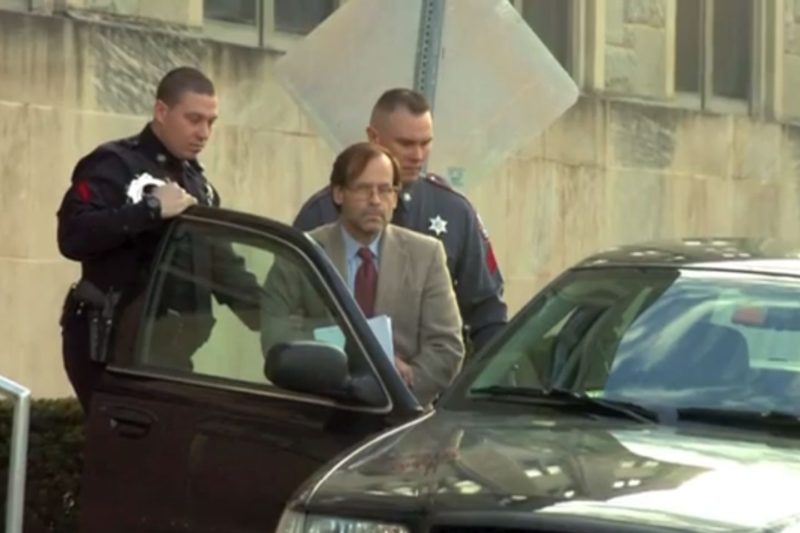New Pennsylvania Clinic May Have Ties to Rogue Abortion Provider
The Pennsylvania Department of Health is investigating a new abortion clinic in Philadelphia that is suspected to be associated with rogue abortion provider Dr. Steven Brigham, according to a spokesperson.

The Pennsylvania Department of Health is investigating a new abortion clinic in Philadelphia that is suspected to be associated with rogue abortion provider Dr. Steven Brigham, according to a spokesperson.
Brigham is a well-known bad actor in Pennsylvania and surrounding states with a long history of licensing and legal trouble, a reputation for providing substandard care, and the tenacity to keep popping up in facilities under different names.
In New Jersey in 2011, regulators reportedly ignored complaints that Brigham was “running a secret, cash-only, late-term abortion business using a risky interstate scheme” for five months, until a raid by another agency forced action.
In some ways, the Brigham case parallels that of rogue abortion provider Dr. Kermit Gosnell, a rogue Philadelphia provider who was convicted of of first-degree murder and involuntary manslaughter. Despite years of complaints and even reports of death, Gosnell was only stopped after the Department of Drug Enforcement raided his clinic for suspicion of drug trafficking.
It is documented by the grand jury report in the Gosnell case that Pennsylvania agencies ignored complaints about Gosnell for years. A recent Rewire investigation revealed that Pennsylvania authorities also ignored complaints filed against Brigham for years. Clinic operators were often the parties to file complaints.
In numerous complaints, emails and phone calls over a period of more than two decades, legitimate abortion providers from New Jersey and neighboring states alerted authorities to Brigham’s dangerous conduct, furnishing warnings they say went largely unheeded. Doctors provided copies of many of these complaints, as well as extensive logs of their calls, to Rewire.
Now, once again, it’s legitimate providers tipping off the Department of Health about a possibly dangerous situation.
What is now a state investigation started with one patient’s phone call. On October 21, the Philadelphia Women’s Center received a “strange call” from a woman who reported that she had received what sounded like “substandard care” at Integrity Family Health, according to Jen Boulanger, communications director for the Women’s Centers. (Boulanger “spent years amassing complaints about Brigham and his associates” while in her former role as executive director of Allentown Women’s Center.)
As first reported by the Philadelphia Inquirer Wednesday morning, Boulanger and staff began searching online after not recognizing the clinic by name. The name popped up in an article about Steven Brigham.
Brigham’s trouble in Pennsylvania goes back two decades. According to the Inquirer, “Brigham agreed to permanently give up his license amid an investigation” of one of his practices as part of a confidential 1992 settlement. But “despite this restriction, Brigham continued to own and expand his abortion business in the state.”
According to the same article, Pennsylvania “permanently banned” Brigham and any corporation in which he has a controlling interest from providing abortions in the state in July 2010. Then, in 2011, he opened clinics under his mother’s name.
“This has been a pattern that Steve Brigham uses, and we know this. Historically, he’s opened closed facilities under different names,” Boulanger told Rewire. “This is not unusual for his type of practice.”
A spokesperson for the Pennsylvania Department of Health said she can’t comment on the ongoing investigation. “[But] if we find violations of the previous court order, the state will take action,” she wrote in an email to Rewire.
State records show that an “initial registration survey” was conducted at Integrity Family Health on September 11, and that “it was determined that the facility was in substantial compliance with the requirements of the Pennsylvania Department of Health regulations.”
If Brigham is behind the clinic, how could this have happened under some of the strictest regulations in the country?
The lawmakers who championed Act 122 did so despite the opposition of all relevant medical associations on the premise that regulating all freestanding abortion clinics as ambulatory surgical facilities would prevent bad actors from opening shop in the state. Critics said that the state enabled Gosnell and Brigham by failing to enforce existing regulations. Pennsylvania Gov. Tom Corbett agreed with critics of the bill, concluding that the Gosnell crisis was enabled by a lack of enforcement (he subsequently fired some staff over it), but then signed new ambulatory surgical facility regulations anyway.
Rep. Matt Baker (R-Bradford/Tioga), chair of the House Health Committee, was arguably the biggest champion of Pennsylvania’s new regulations. In a phone call with Rewire, Rep. Baker says he doesn’t know how, if Integrity Family Health is indeed associated with Steve Brigham, it was able to open.
“I have several phone calls in to the Department of Health [and] emails which have not been returned asking these questions,” he said. “I just don’t understand. There’s a lot of missing pieces here.”
Kermit Gosnell’s now-closed clinic operated in the district overseen by Rep. Michelle Brownlee (D-Philadelphia). During contentious debates, Brownlee spoke out against the new regulations.
“Act 122 only addressed the facility; it did not address the Gosnell situation, or what I commonly refer to it as the ‘Gosnell syndrome,’” Rep. Brownlee told Rewire. “[Act 122] was making the case for ambulatory surgical facilities. You could have a bad character in one of them. Does it solve the problem? No. What it does is it limits women’s opportunities for good health care.”
Amid the rampant politicization of the case, it was Brownlee’s constituents who were hurt by this kind of mistake happening before.
“If the [Department of Health] is not proactive in ferreting out bad characters as far as women’s health is concerned,” said Rep. Brownlee, “this could happen again and again and again. It is not the facility itself.”
